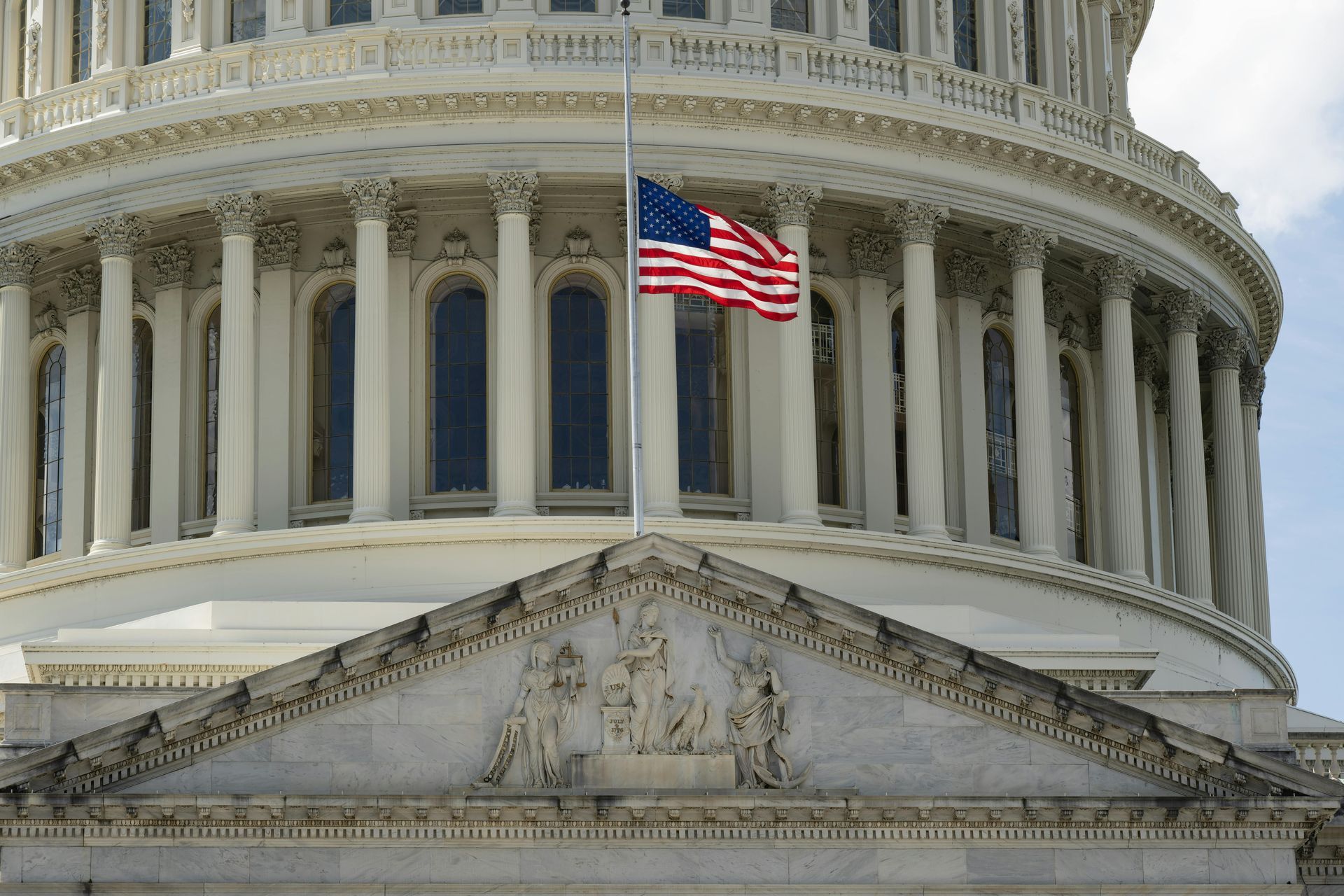Formando uma franquia para o visto EB-2 de Isenção de Interesse Nacional
Kyle Huffman • October 6, 2022
Transformando a sua empresa em uma franquia, pode aumentar suas chances de sucesso ao aplicar para o visto de isenção nacional. Sabe por quê?
A aplicação para isenção de interesse nacional (NIW) é uma aplicação complexa de visto de trabalho, com muitos benefícios. Uma das vantagens principais do NIW é que a aprovação desse tipo de caso leva diretamente a obtenção do green card. Para aplicar para o NIW, o candidato precisa ter um empreendimento proposto complementando a aplicação e precisa mostrar que o empreendimento proposto terá mérito substancial e importância nacional para os Estados Unidos, se o caso for aprovado. Este artigo explica por que franquear sua empresa como o empreendimento proposto poderá ajudar a provar o mérito substancial e a importância nacional do empreendimento.
O que é uma franquia?
Franquia é um acordo empresarial em que uma organização (franqueador) cede ao investidor o direito de usar a sua marca. Subway, McDonald’s e o 7-Eleven são todos exemplos conhecidos de franquias. O franqueador normalmente tem um controle significativo sobre o investidor (também conhecido como franqueado). O franqueado se beneficia pelo reconhecimento da marca da sua franquia, assim como regulamentos e processos existentes, campanhas de marketing, cadeia de distribuição e fornecimento organizadas pelo franqueador.
Vantagens de criar uma franquia para um visto EB2 Isenção de Interesse Nacional
Toda aplicação de NIW necessita que o requente tenha o empreendimento proposto complementando a aplicação. Para muitos, iniciar uma empresa nos Estado Unidos é um excelente empreendimento proposto como base de um NIW. Quando se aplica para um NIW, uma das exigências que o requerente precisa provar é se o empreendimento proposto tem mérito substancial e importância nacional. O USCIS olhará vários fatores para decidir se o empreendimento proposto tem importância nacional, mas dois fatores mais importantes que eles analisam são:
- Se o empreendimento proposto tem potencial para empregar trabalhadores americanos, tanto direta como indiretamente.
- A probabilidade de o empreendimento proposto ter um impacto econômico positivo substancial, particularmente em áreas economicamente enfraquecidas.
Franqueando sua empresa pode trazer benefícios e ajudar a mostrar porque o empreendimento proposto irá aumentar significativamente a criação de empregos, assim como trazer benefícios econômicos substanciais.
Para mostrar a possível oportunidade de criação de empregos para trabalhadores americanos, transformar a empresa em uma franquia tem claras consequências sobre a capacidade de criação de empregos. Para o franqueador, haverá a necessidade de criar alguns empregos diretos. Esses empregos podem incluir cargos que são comuns em vários negócios, incluindo recepcionista, recursos humanos, vendedores, e qualquer outra posição necessária para o andamento das operações. Mas o grande potencial à criação de empregos, vem dos empregos indiretos criados pela franquia. Por exemplo, se a franquia é um restaurante ou outro estabelecimento alimentar, cada loja aberta como franquia terá que contratar sua própria equipe de funcionários para as operações do empreendimento. Seriam, caixas, garçons, cozinheiros e será necessário contratar mais funcionários para cada unidade de franquia que for aberta. Se são necessários de 5 – 10 funcionários para operar uma unidade da franquia, consequentemente 10 unidades criarão entre 50 a 100 empregos para trabalhadores americanos, mostrando o imenso potencial de criação de empregos dentro de uma franquia.
Além disso, as unidades da franquia podem ser abertas por todos os Estados Unidos, aumentando o alcance do empreendimento proposto enquanto, simultaneamente, aumenta a probabilidade de uma pequena empresa economicamente ativa (franqueado) abrir em áreas economicamente enfraquecidas dos Estados Unidos. Organizando a empresa em uma franquia, não somente abre as portas para pessoas que esperam ter seu próprio negócio, como também dá a oportunidade de criação de pequenas empresas em todo território nacional.
Se você é um empresário ou gostaria de ser dono de seu próprio negócio usando a empresa como seu empreendimento proposto, em um EB2 de Isenção de Interesse Nacional, considere fazer da sua empresa uma franquia, para aumentar as probabilidades de aprovação.
Se tiver alguma dúvida sobre o que isso significa para você, por favor marque uma consulta com um de nossos experientes advogados.
Será um prazer trabalhar com você!
Este blog no pretende ser un consejo legal y nada aquí debe interpretarse como el establecimiento de una relación abogado-cliente. Programe una consulta con un abogado de inmigración antes de actuar sobre cualquier información que lea aquí.
This Facebook widget is no longer supported.
Kyle Huffman
Similar Posts

Embarking on the exhilarating journey of launching a new tech startup in the United States is a venture that blends innovation with ambition, and the dynamic landscape of the country offers an unparalleled stage for entrepreneurs to turn their groundbreaking ideas into thriving businesses. The United States highly values its position among the technology leaders of the world. In a nation fueled by a relentless pursuit of technological advancements, the process of bringing a startup to life involves navigating through a myriad of opportunities, challenges, and regulatory landscapes. This is particularly true for foreign entrepreneurs, who must also navigate the immigration system in addition to focusing on launching their businesses. Nevertheless, the United States recognizes the value in bringing technological innovators into the country and has created special considerations for immigrants with education in STEM (Science, Technology, Engineering, and Mathematics) who are seeking to develop important cutting-edge technologies in the United States. These special considerations apply to the EB-2 National Interest Waiver, an immigrant visa classification which leads to permanent residency, and eventually citizenship in the United States. At the heart of every EB-2 National Interest Waiver petition is a proposed endeavor, and while these proposals for the United States can be about nearly anything, the Immigration Service is directed to recognize particular importance for proposals that aim to develop specific technologies that the Biden administration has identified as critical for U.S. competitiveness and national security. In particular, these areas of critical and emerging technologies include: Advanced Computing Advanced Engineering Materials Advanced Gas Turbine Engine Technologies Advanced Manufacturing Advanced and Networked Sensing and Signature Management Advanced Nuclear Energy Technologies Artificial Intelligence Autonomous Systems and Robotics Biotechnologies Communication and Networking Technologies Directed Energy Financial Technologies Human-Machine Interfaces Hypersonics Networked Sensors and Sensing Quantum Information Technologies Renewable Energy Generation and Storage Semiconductors and Microelectronics Space Technologies and Systems If you are a tech entrepreneur with an education in a STEM field, seeking to launch a startup in the U.S. developing any of these technologies, the EB-2 National Interest Waiver might be your ticket to permanent residency. Whether you're drawn to the iconic landscapes of Silicon Valley or the emerging tech scenes across the nation, the time is now to make your mark. If you are interested in applying for a National Interest Waiver to launch a startup in the United States, schedule an appointment with one of our skilled attorneys.

In the landscape of U.S. immigration law, the pursuit of an employment-based green card can be a significant milestone for foreign nationals aspiring to establish their careers in the United States. Among the various pathways available, self-sponsorship for an employment-based green card stands out as an option that grants individuals the ability to sponsor their own immigration journey, offering a unique opportunity for skilled professionals and entrepreneurs. Traditionally, most employment-based green card categories require an employer to sponsor the foreign national, demonstrating the need for their skills or expertise. However, certain visa categories permit self-sponsorship, allowing individuals to petition for permanent residency without a specific employer's sponsorship. These include: 1. EB-1A Extraordinary Ability: Individuals with extraordinary abilities in the sciences, arts, education, business, or athletics may self-petition for an employment-based green card. They must demonstrate sustained national or international acclaim, providing extensive evidence of their achievements in their field. 2. EB-2 National Interest Waiver (NIW): This category enables individuals whose work is deemed to be in the interest of the United States to self-sponsor. Applicants must demonstrate their work's significance and how it benefits the nation as a whole. 3. EB-5 Immigrant Investor Program: Entrepreneurs investing in a new commercial enterprise that creates jobs for U.S. workers can self-petition for an employment-based green card. They must meet certain investment thresholds and fulfill job creation requirements. While these classifications have the advantage of allowing an individual to self-petition, each of these applications have distinct, stringent requirements to meet. This route can be challenging, requiring substantial evidence and a compelling case to prove extraordinary abilities or qualifications. Additionally, meeting the high standards set by USCIS for self-sponsorship can be demanding, necessitating thorough preparation and documentation. Navigating the complexities of immigration law, especially concerning self-sponsorship, often requires professional legal guidance. Seeking assistance from experienced immigration attorneys or consultants can significantly enhance the chances of a successful self-sponsored green card application, ensuring compliance with the intricate regulations and requirements. If you have any questions about what this means for you, please schedule a consultation with one of our experienced attorneys. We look forward to working with you.

The federal government entered a partial shutdown on January 31, 2026, after Congress failed to pass a final funding package. While this follows the record-breaking 43-day shutdown from last fall, this disruption is expected to be brief, with a House vote anticipated for the first week of February. However, as of February 2, several key departments are operating under shutdown contingencies. If you are an employer or a foreign national, here is what you need to know about how this affects your immigration matters: Impacts for Employers Certified LCAs: The Department of Labor (DOL) has suspended the processing of Labor Condition Applications. This means employers cannot currently obtain the certifications required to file new H-1B, H-1B1, or E-3 petitions. PERM and Prevailing Wages: Processing for PERM labor certifications and prevailing wage determinations has halted. This will likely cause a backlog once the government reopens. E-Verify: The E-Verify system is typically taken offline during a shutdown. Employers should continue to follow I-9 requirements but may be unable to resolve Tentative Nonconfirmations (TNCs) until the system is restored. Impacts for Employees and Families Consular Services: While U.S. embassies and consulates are fee-funded, their operations may be reduced. If you have an upcoming visa interview, check the specific consulate's website for status updates, as delays are possible. USCIS Operations: Because USCIS is primarily funded by application fees, it remains open. You should still attend scheduled interviews and biometrics appointments unless notified otherwise. CBP and Travel: U.S. Customs and Border Protection (CBP) functions are essential. Ports of entry remain open, though you may experience longer waiting times due to staffing adjustments. At Santos Lloyd, we are closely monitoring the situation as it unfolds. Whether you are an employer seeking guidance on how this shutdown impacts your hiring plans or an employee with general questions regarding if or how you may be affected, please reach out to our office. We remain dedicated to providing the updates and professional assistance necessary to help you navigate these disruptions.

U.S. Citizenship and Immigration Services (USCIS) has announced a major change to the H-1B cap selection process. Under a final rule issued on December 29, 2025, USCIS will replace the long-standing random H-1B lottery with a wage-weighted selection system that favors higher-paid and more complex positions. The rule is scheduled to take effect on February 27, 2026 , just ahead of the fiscal year 2027 H-1B cap registration season, unless delayed by legal challenges. If implemented, USCIS is expected to release additional guidance explaining how employers must submit registrations under the revised process. This change marks one of the most significant reforms to the H-1B program in recent years. Up until 2025, all registrations were treated equally once the annual cap was reached. Under the new system, selection odds will be tied to wage levels based on the U.S. Department of Labor’s Occupational Employment and Wage Statistics data. All H-1B registrations will still be placed into a single selection pool, but registrations tied to higher wage levels will receive multiple entries into that pool, increasing their likelihood of selection. Lower wage levels will receive fewer entries, making selection less likely but not impossible. H-1B wage levels are not determined solely by salary. Each wage level reflects the complexity of the job, the level of responsibility involved, and the education and experience required . Entry-level positions involving routine duties and close supervision are generally classified at the lowest wage level, while positions requiring independent judgment, advanced skills, and significant responsibility fall into higher wage levels. The highest wage level is reserved for roles that involve expert knowledge, strategic decision-making, and substantial leadership or technical authority. USCIS is expected to closely scrutinize selected petitions to ensure that the wage level claimed during registration is supported by the job duties and salary offered in the petition. Any discrepancies between the registration and the petition may result in requests for evidence, denials, or enforcement action. With the elimination of the purely random lottery, employers should begin preparing early by carefully evaluating job descriptions, wage levels, and overall H-1B strategy. Accurate classification and thoughtful planning will be essential under this new wage-based selection system. If you are an employer considering H-1B sponsorship, or a foreign professional wondering whether your position may qualify under the new wage-based system, consulting with experienced immigration counsel is more important than ever. Santos Lloyd Law is actively advising clients on H-1B cap registrations and strategy under the new rules. To discuss your options or determine whether you may qualify, contact our office to schedule a consultation.

During the recent administration there has been an increase in issuance of Requests for Evidence for EB-1A petitions for those of Extraordinary Ability. A Request for Evidence is a request that is made by USCIS that should explain how the evidence is deficient in proving the criteria argued and what additional evidence needs to be provided by the applicant to meet the criteria. EB-1A petitions are already normally subject to higher scrutiny because their approval is the first step needed to apply for Lawful Permanent Residence or a green card. USCIS normally requires not just evidence but that the evidence be provided with context and information to show why it matters in a particular field. For example, if you were providing evidence of your membership in an organization that requires outstanding achievements of its members, just providing evidence of the membership is not enough. You must explain what that membership is and provide background information on the organization granting the membership. You also need to provide evidence on the criteria that is used to select the members, information on those who select the members to show that they are recognized experts, other documentation such as articles about the membership organization to show its importance, and any other relevant evidence and background information to show that the criteria is met. A request for evidence being issued prior to the current administration was not uncommon, but in the current climate it is more surprising to not receive a request for evidence for this type of case. It is important to remember that a request for evidence is not a denial. Depending on the validity of the information in the request and the substance some Requests for Evidence can be overcome, and the case be approved. It is important to carefully review the request and note if there are any errors in the content and application of the regulations by USCIS. If you have an attorney, you should work with them and make sure that you provide any evidence you think may be helpful. Although there is a deadline by which a response must be submitted, attention to detail and patience will go a long way when dealing with having to respond to a request for evidence. If you believe you may qualify for this type of visa, please feel free to contact our office.



